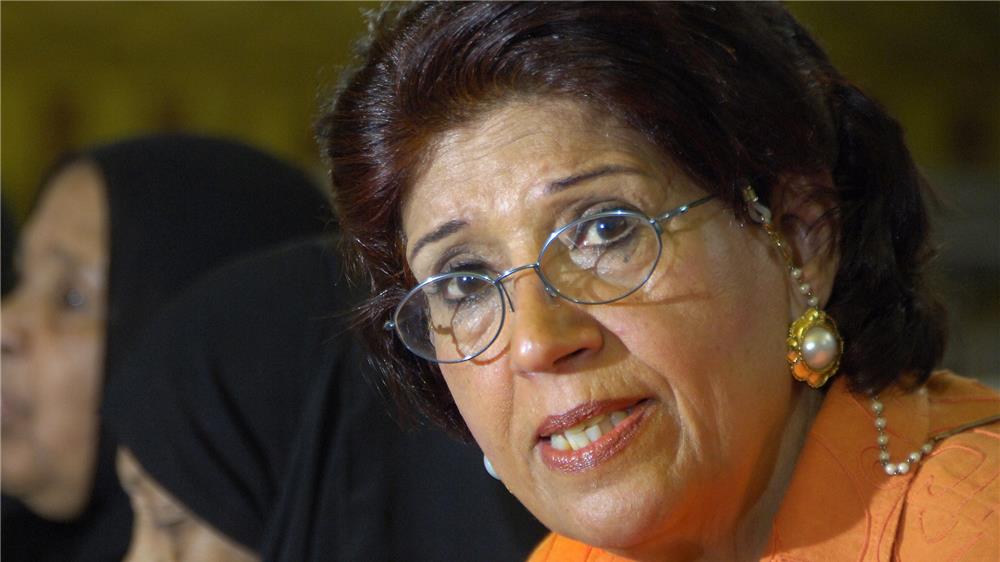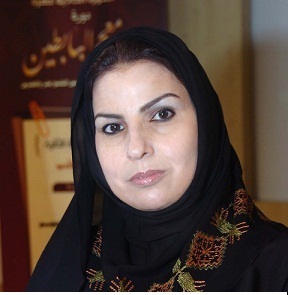Many years ago, the Kuwaiti journalist Fatma Hussein wrote a personal dedication to me on the first page of her autobiography, My Papers. “My dear Saadia Mufarreh,” the elegant handwriting read, “wishing you an enjoyable read about a past that you did not live through but whose seeds you still carry within you.”
In fact, I wasn’t sure if I did really know this past that Fatma was talking about nor did I know if I did in fact carry its seeds within me. As I read, I discovered that she was talking about an entirely different past from the one I had imagined I’d inherited.
The dedication took me back to the first time that I ever saw Fatma, known in Kuwait as an icon of early-1990s women’s journalism. She was standing in front of the lift at the Al-Watan newspaper where I worked and where she had been appointed editor-in-chief – the first female editor-in-chief of a Kuwaiti daily.
Other Kuwaiti women had held leadership positions in the press, with the most famous being Ghanima Al-Marzouq, who in 1965 became the founder and editor of the country’s first women’s magazine, Usrati. But Al-Marzouq still seemed like a special case: Usrati was a women’s magazine that she had founded in cooperation with her husband. Fatma Hussein was different. She was the first Gulf woman to study journalism at university, having been part of a student delegation to Cairo in 1956. This was a strange-seeming choice of specialisation for a woman from a country where women’s education, and women’s work more generally, were still in their infancy.
Fatma has never stopped leading the way for women in journalism. In 2017, she was chosen to head the Kuwaiti Journalists’ Association (KJA) – the first woman to ever hold a post of this level anywhere in the Arab World.

But Fatma’s remarkable achievements are not representative of most female Gulf journalists’ careers. Although many Gulf women have worked in this field, it is rare to find them in more senior roles. Their accomplishments – whether we mean by the female participation rate or the depth of the impact they have had – cannot possibly be seen as a proper continuation of the ground-breaking work by Fatma and her counterparts in other Gulf countries. Unfortunately, women have been confined to stereotypically gender-specific coverage, so-called “women’s” and “daily life” journalism. Only a select few trailblazers have tried to break into broader fields like politics or sports journalism.
The “glass ceiling” that prevents women journalists from progressing in the Gulf is not due to a lack of competence, but rather a product social norms that encourage the press to favour men over women when filling posts. Male and female students study the same curricula in media departments across the Gulf. They are trained in the same places and to the same level. But nonetheless, those in charge of media outlets – which are mostly non-governmental organisations – prefer to employ male rather than female journalists, all other things being equal. Within the same newspaper we find female journalists crammed into departments covering cooking, interior design, fashion, health, beauty, education, and social investigations of a feminine character. Even in these departments they are often forced to compete with men!
Meanwhile, women are almost entirely absent from departments covering global, regional and local politics, the economy, sport, science, intellectual developments and religion. Even worse, there are fields at the centre of the profession that women could never even dream of working in, such as film production, design, printing, photography, cartoons. This is not because these roles are considered physically unsuitable for women, but because, as noted above, there is an assumption that women are not “up to the task.”
Women are permitted to work strictly on the margins of journalism, writing articles that do not require journalist experience, perhaps as part of a weekly column. This functions as a sort of compensation for not being able to work in real journalism, a way for outlets to avoid the accusation that women suffer from discrimination in the field. At the same time, women themselves have found writing from the comfort of their own homes, without ever setting foot on the beat, to be an easy way to reach readers without interrupting the conservative social expectations of the Gulf about a woman’s role in society.
Those responsible for media outlets in the Gulf are still clearly constrained by traditional notions of what a woman’s role is in the media and press. This is despite the fact that their professional lives provide them with ample evidence that this idea is baseless – and even though in their own articles and editorials they are, outwardly at least, tenacious foes of that same idea.
Some Gulf governments have noticed the low rates of female participation in the media and have tried to rectify this by passing laws promoting women’s standing in these workplaces. However, these laws have actually sometimes made media heads hesitant to hire women, with the excuse that these laws oblige them to give female employees more rights than males (such as in the case of maternity leave). There is also the social practice of women’s public lives being restricted to particular hours–something unsuitable for the unpredictable schedules of journalists.
As a result, media bosses often employ women within only the most narrow of limits, leading to a roll-back of the progress women made in journalism in the sixties, seventies, and eighties. Although there are now female editors-in-chief, managing editors, and heads of departments in the Gulf, their numbers do not reflect the real value of women’s work, skills or history in the region’s journalistic tradition. Nor do they reflect the ratio of women to men in the populations of the various Gulf states.
Fatma Hussein’s appointment as head of the KJA – as the first woman to occupy this sort of position in the Arab World – has been welcomed by most male Kuwaiti journalists. But this welcome is, at heart, a matter of personal respect for a woman seen as unique, rather than a deeply rooted belief in a need for women to enjoy equal representation in journalism. And the irony is that the woman who now heads their only professional association has not worked as a journalist for a long time: After many years maintaining just a weekly column, she has now stopped writing entirely.











































